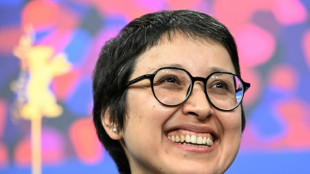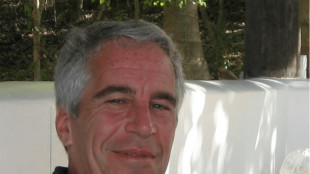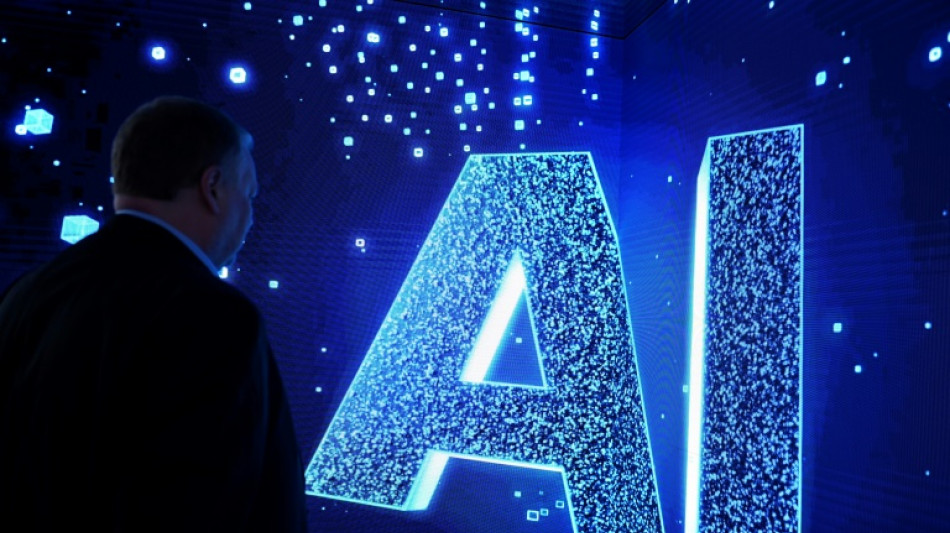
-
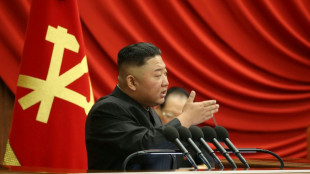 Diplomacy, nukes and parades: what to watch at North Korea's next party congress
Diplomacy, nukes and parades: what to watch at North Korea's next party congress
-
Arsenal, Man City eye trophy haul, Macclesfield more FA Cup 'miracles'

-
 Dreaming of glory at Rio's carnival, far from elite parades
Dreaming of glory at Rio's carnival, far from elite parades
-
Bangladesh's BNP heading for 'sweeping' election win
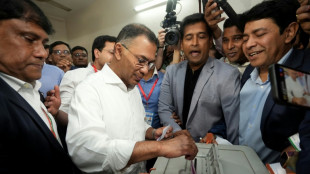
-
 Hisatsune grabs Pebble Beach lead with sparkling 62
Hisatsune grabs Pebble Beach lead with sparkling 62
-
Venezuela amnesty bill postponed amid row over application

-
 Barca taught 'lesson' in Atletico drubbing: Flick
Barca taught 'lesson' in Atletico drubbing: Flick
-
Australia's Liberals elect net zero opponent as new leader
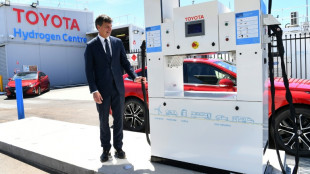
-
 Arsenal must block out noise in 'rollercoaster' title race: Rice
Arsenal must block out noise in 'rollercoaster' title race: Rice
-
Suns forward Brooks banned one game for technical fouls

-
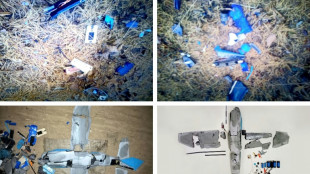 N. Korea warns of 'terrible response' if more drone incursions from South
N. Korea warns of 'terrible response' if more drone incursions from South
-
LA fires: California probes late warnings in Black neighborhoods

-
 Atletico rout Barca in Copa del Rey semi-final first leg
Atletico rout Barca in Copa del Rey semi-final first leg
-
Arsenal held by Brentford to offer Man City Premier League title hope

-
 US snowboard star Kim 'proud' as teenager Choi dethrones her at Olympics
US snowboard star Kim 'proud' as teenager Choi dethrones her at Olympics
-
Chloe Kim misses Olympic milestone, Ukrainian disqualfied over helmet

-
 Tech shares pull back ahead of US inflation data
Tech shares pull back ahead of US inflation data
-
'Beer Man' Castellanos released by MLB Phillies

-
 Canada PM to join mourners in remote town after mass shooting
Canada PM to join mourners in remote town after mass shooting
-
Teenager Choi wrecks Kim's Olympic snowboard hat-trick bid

-
 Inter await Juve as top guns go toe-to-toe in Serie A
Inter await Juve as top guns go toe-to-toe in Serie A
-
Swiatek, Rybakina dumped out of Qatar Open
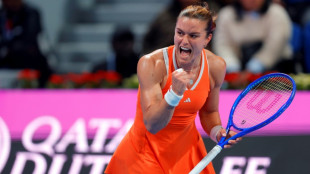
-
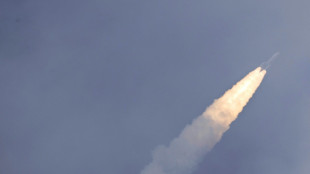 Europe's most powerful rocket carries 32 satellites for Amazon Leo network into space
Europe's most powerful rocket carries 32 satellites for Amazon Leo network into space
-
Neighbor of Canada mass shooter grieves after 'heartbreaking' attack

-
 French Olympic ice dance champions laud 'greatest gift'
French Olympic ice dance champions laud 'greatest gift'
-
Strange 'inside-out' planetary system baffles astronomers

-
 Teenager Choi denies Kim Olympic snowboard hat-trick
Teenager Choi denies Kim Olympic snowboard hat-trick
-
Swiss bar owners face wrath of bereaved families

-
 EU vows reforms to confront China, US -- but split on joint debt
EU vows reforms to confront China, US -- but split on joint debt
-
Rubio heads to Munich to heap pressure on Europeans

-
 Less glamour, more content, says Wim Wenders of Berlin Film Fest
Less glamour, more content, says Wim Wenders of Berlin Film Fest
-
What is going on with Iran-US talks?

-
 Wales 'means everything' for prop Francis despite champagne, oysters in France
Wales 'means everything' for prop Francis despite champagne, oysters in France
-
Giannis out and Spurs' Fox added to NBA All-Star Game

-
 The secret to an elephant's grace? Whiskers
The secret to an elephant's grace? Whiskers
-
Chance glimpse of star collapse offers new insight into black hole formation

-
 UN climate chief says 'new world disorder' threatens cooperation
UN climate chief says 'new world disorder' threatens cooperation
-
Player feels 'sadness' after denied Augusta round with grandsons: report

-
 Trump dismantles legal basis for US climate rules
Trump dismantles legal basis for US climate rules
-
Former Arsenal player Partey faces two more rape charges

-
 Scotland coach Townsend adamant focus on England rather than his job
Scotland coach Townsend adamant focus on England rather than his job
-
Canada PM to visit town in mourning after mass shooting

-
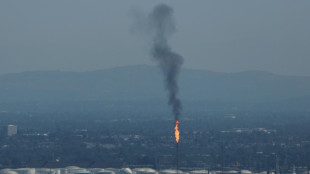 US lawmaker moves to shield oil companies from climate cases
US lawmaker moves to shield oil companies from climate cases
-
Ukraine says Russia behind fake posts targeting Winter Olympics team

-
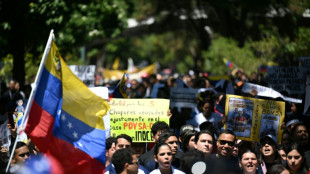 Thousands of Venezuelans stage march for end to repression
Thousands of Venezuelans stage march for end to repression
-
Verstappen slams new cars as 'Formula E on steroids'
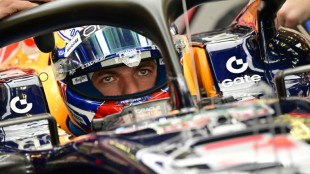
-
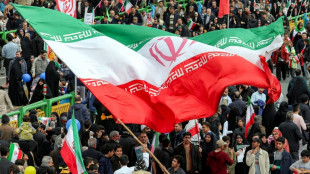 Iranian state TV's broadcast of women without hijab angers critics
Iranian state TV's broadcast of women without hijab angers critics
-
Top pick Flagg, France's Sarr to miss NBA Rising Stars

-
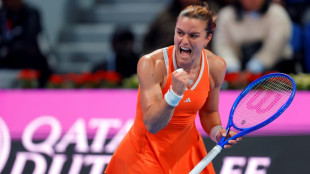 Sakkari fights back to outlast top-seed Swiatek in Qatar
Sakkari fights back to outlast top-seed Swiatek in Qatar
-
India tune-up for Pakistan showdown with 93-run rout of Namibia
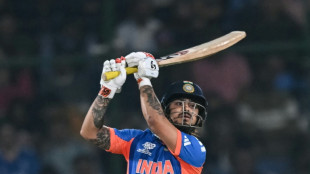

Chips industry goes all-in on AI
It's been a wild few years for the microchip industry, recovering from a long-term supply squeeze only to be thrust into the centre of a US-China battle to control supply lines of the valuable technology.
But an industry long associated with volatility is quietly getting excited that artificial intelligence (AI) could be the key to some longer-term stability.
US firm Nvidia dominates the market in specialised chips known as GPUs, which happen to be ideal for training AI programmes like the wildly popular chatbot ChatGPT.
"Technology trends are working in Nvidia's direction," the firm's vice president Ronnie Vasishta told AFP this week at the Mobile World Congress (MWC) in Barcelona.
This has helped make Nvidia the biggest company in the sector -- and one of the biggest firms of any kind in the United States -- with a valuation of $580 billion.
Traditional rivals like Intel and Qualcomm are now on manoeuvres, desperate to make sure they do not miss out.
The tiny components, also known as semiconductors, are essential in everything from smartphones, PCs and electric cars to sophisticated weaponry, robotics and all other high-tech machinery.
AI already features heavily in all of these fields, and the advent of chatbots is only pushing it further into the public imagination.
Even in a sector where low-key engineers do the talking, the enthusiasm is palpable.
- 'Scratching the surface' -
"The most exciting thing right now is AI," Cristiano Amon, boss of rival firm Qualcomm, told a Wall Street Journal event at the MWC.
He wants the world's phones to be tooled up with chips able to handle even the most tricky AI-related tasks, largely because Qualcomm leads the field in phone chips.
Vasishta is equally enthused.
"Where and how does AI get used? It's probably going to be easier to answer where is it not getting used," he said.
Another chip firm, the British-based Arm, is even further back in the production chain than Nvidia -- it provides the designs used by chip suppliers.
The firm's Chris Bergey told AFP there was massive potential with AI.
The kind of chips Nvidia produces are great for training AI models in data centres, he said, but smartphones need chips that can act based on those models.
"It's a huge opportunity and it's ubiquitous," he said.
He compares the AI revolution to the onset of apps, which appeared about 15 years ago and rapidly changed the way we used technology.
"Definitely AI is something that has a lot of interesting applications and we're still scratching the surface of where we'll go."
- 'Too cool' -
Yet, with chips, nothing is straightforward.
The supply chain is fiendishly complex -- consulting firm Accenture reckons a chip crosses borders 70 times before it ends up in a phone, camera or car.
Countries like China and the United States would prefer to have greater control.
And there is an added problem: the factories that make most of the world's chips are in Taiwan, a self-ruled island that China claims.
This could bring China and the United States into direct conflict.
Mild-mannered as ever, semiconductor executives will not be drawn into discussions on these issues.
"We don't have really a position on the geopolitics, we comply with all the US regulations that are required as a US company," said Vasishta.
Bergey, who has spent 25 years in the industry, said he had seen chips lurch from being "very cool" to "very boring".
"They're cool right now, perhaps too cool with too much attention," he said.
"It's a dynamic thing the industry is dealing with and we'll have to see how these things play out."
A.Suleiman--SF-PST

